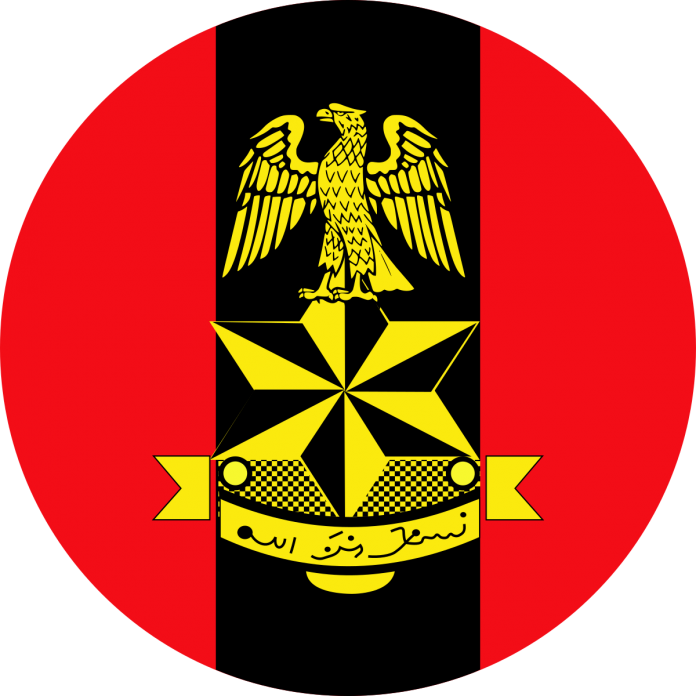The Nigerian armed forces will commence the gradual withdrawal of troops from some of their security operations across the country from the first quarter of 2020.
Chief of Naval Staff, Rear Admiral Ibok Ekwe-Ibas, who disclosed this to State House Correspondents in Abuja on Monday, after a Security Council meeting with President Muhammadu Buhari, also explained that withdrawal of troops would follow proper assessment of success rates of operations.
Ekwe-Ibas also said the armed forces are doing everything possible to end the reign of terrorists groups operating in the northern part of the country, especially the Islamic State West Africa Province (ISWAP), noting that recent onslaught against them proved that Nigeria had been having an upper hand.
Explaining the reason for the decision to end the operations in some parts of the country soon, the Navy chief said the council observed that the forces had done their best to stabilize the security situation in the affected areas.
He noted that it was agreed that the natural step for security agencies to take is to restore civil security arms to the satisfactorily cleared areas under military operations.
“We had a security council meeting with Mr. President where we appraised the year 2019 generally with emphasis on ongoing operations both within as well as the regional operations ongoing.
“With respect to operations within the country, it was generally agreed and noted that the security agencies have done their very best in ensuring that the deliverables are made clear.
“You will recall that the various operations in the country in the northeast, northwest, north central, the southeast, as well as the southwest where all members of the armed forces are taking part as well as the intelligence agencies, have ensured that we all enjoyed a better holiday period that has just been observed.
“We also recalled that in those areas where the military have been able to achieve desired objectives, from the first quarter of next year, the civil authority will be preparing to take back those responsibilities as the military draws back its forces from those areas to enable it force its attention on other emerging threats and areas of concern”, he said.
When asked to elaborate on the mode to be employed in the planned withdrawal of troops and the areas to be affected, the Naval chief said the withdrawal would follow an assessment of operations in different areas, adding that it is only when success levels had been certified as good enough to be handed to civil authorities that troops would be taken out of an area.
“Let me make it very clear that an assessment of what the military will do will be based on the situation on ground. It is not expected that the military will withdraw when it is apparent that there are still some threats in such locations.
“I’m sure we are also aware that the nation is procuring equipment for the military. It is expected that before the second quarter of next year, most of these equipment should be in place. It, therefore, means that all our hands are put on ground, looking at the technology backed surveillance that will enable the military react more efficiently and effectively.
“With that it is also believed that the Nigerian police will take the lead in containing security in such areas that must have been assessed to be in the right place to sustain. I don’t believe that a responsibility military will want to withdraw when it is apparent that there is still risk that cannot be overcome by the police”, he explained.
On the activities of terrorist groups within and outside the Nigerian borders, the Navy chief said the military had made a lot of progress, noting that many attempted attacks had been foiled even as many of their leading commanders had been neutralized.
“On the activities of the Islamic State West Africa Province (ISWAP), I will also like you to look at it from a broader African perspective. We have in recent past have attacks in Burkina Faso, Mali, Niger and other countries in West Africa. While it is painful to lose people and from within, I think the military is doing all within its power to ensure that we overcome the menace and the threats posed by ISWAP.
“You will also recall that just two weeks back we have had over 27 attacks from Boko Haram and ISWAP in the northeast alone. Our gallant troops out there were able to repel these attacks and even took out some of their commanders. So, it is a thing of concern but the armed forces of Nigeria are doing all in their powers to ensure that together with other regional partners, that the menace of ISWAP is contained”, he said.
He further said that the armed forces were concerned with the prolonged nature of the fight against terrorism within the country, adding that they were doing everything to see to the end of all operations so that the nation could focus more on development issues, saying “it is our wish to have the insurgency and terrorism issues resolved once and for all to enable us focus on matters of development”.
The meeting was attended by the Chief of Defense Staff, General Gabriel Olonisakin; Chief of Air Staff, Air Marshall Abubakar Sadique; Chief of Defense Intelligence, Air Vice Marshal Mohammed Usman; the Director General of Department for State Service (DSS), Yusuf Magaji Bichi; the National Security Adviser (NSA), Babagana Monguno; the Secretary to the Government of the Federation (SGF), Boss Mustapha; and the Nigerian Army Chief of Policy and Plans; Lt. Gen. Lasisi Adeosun, who represented Chief of Army Staff, Lt. Gen. Tukur Buratai.


